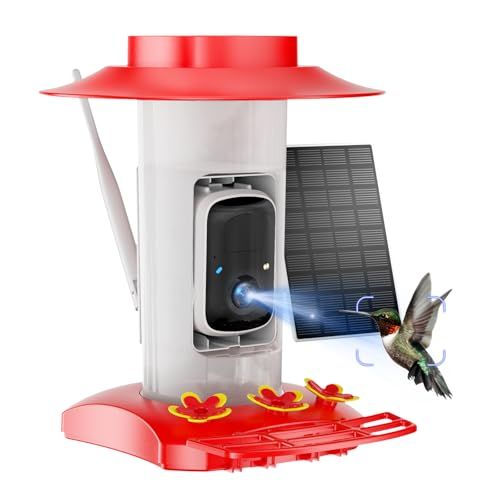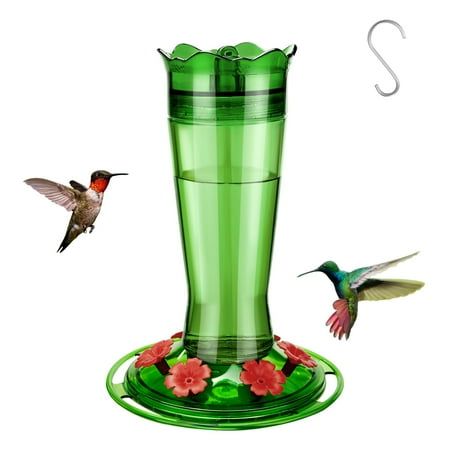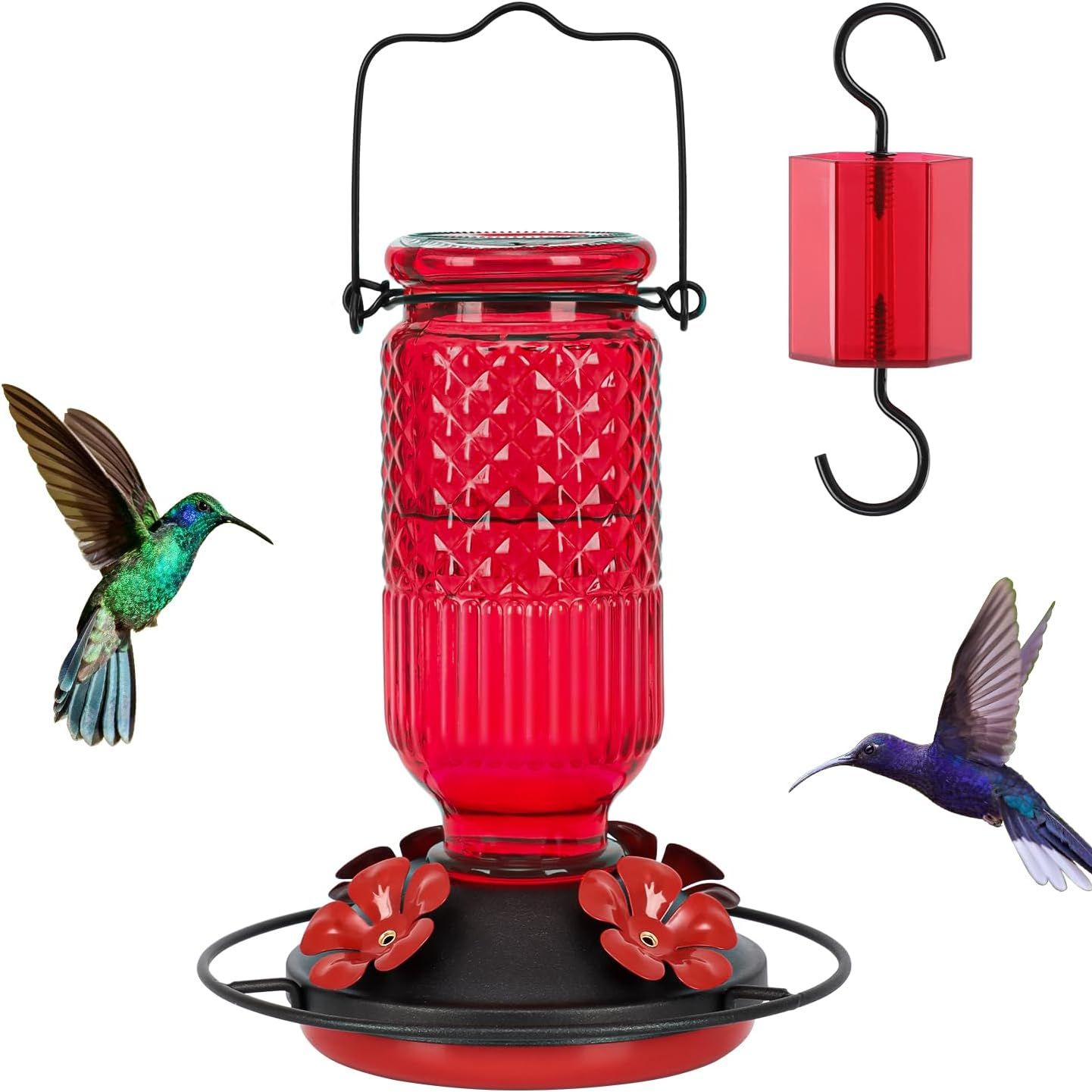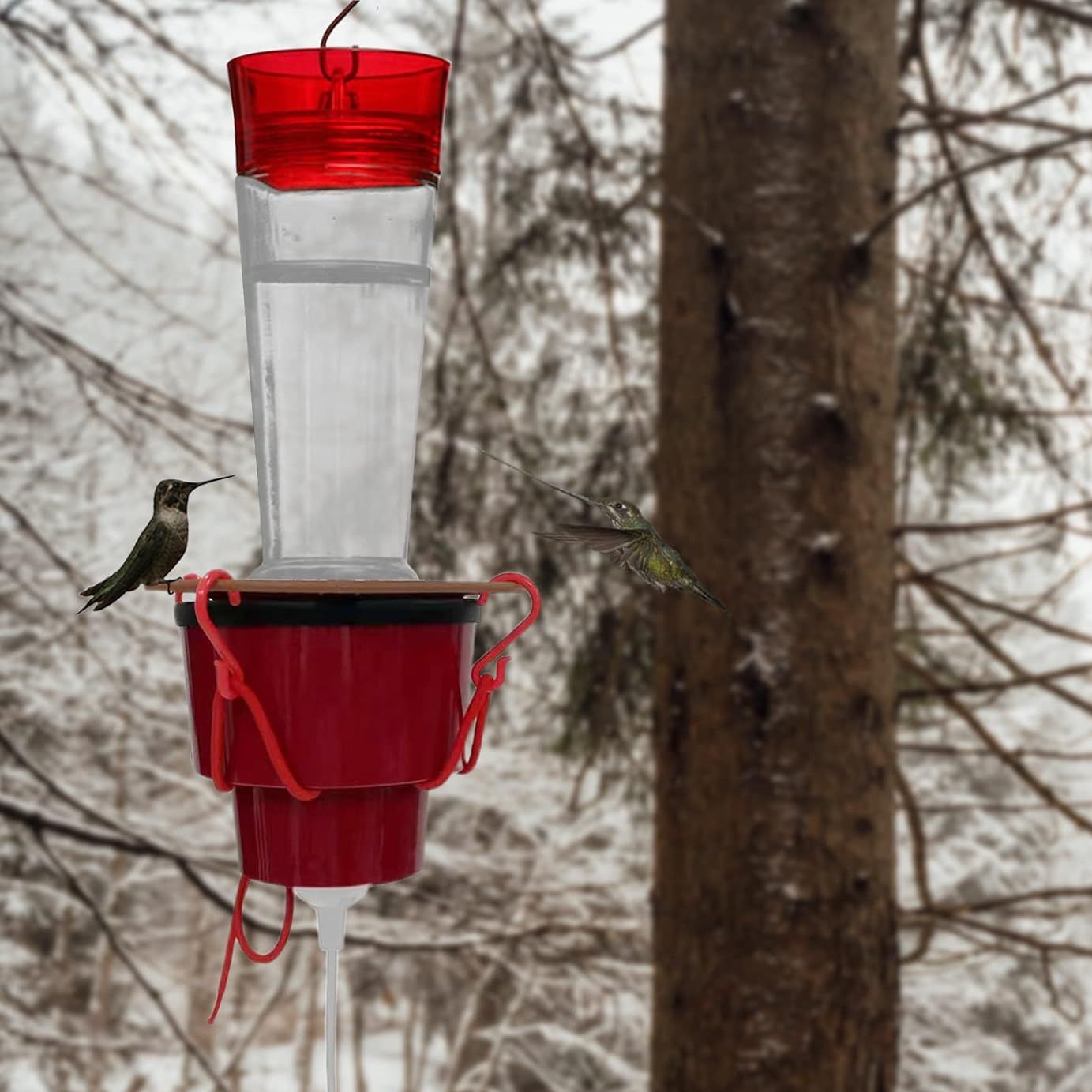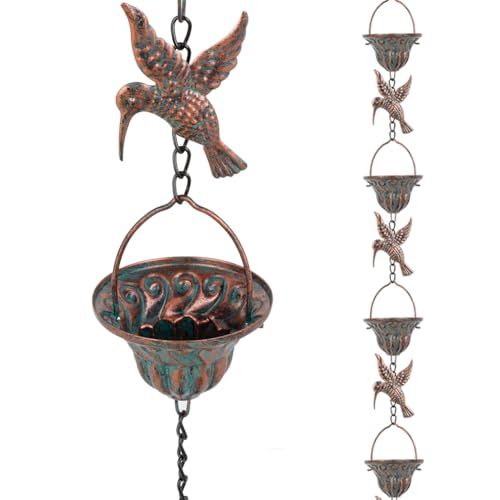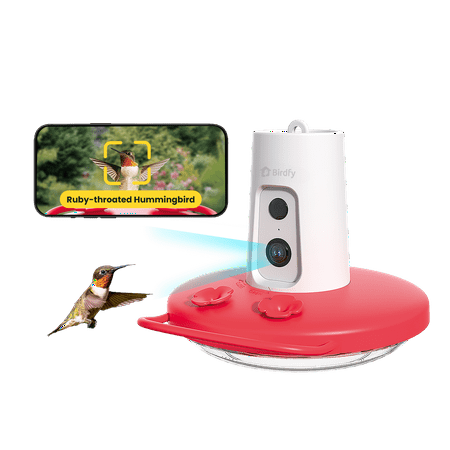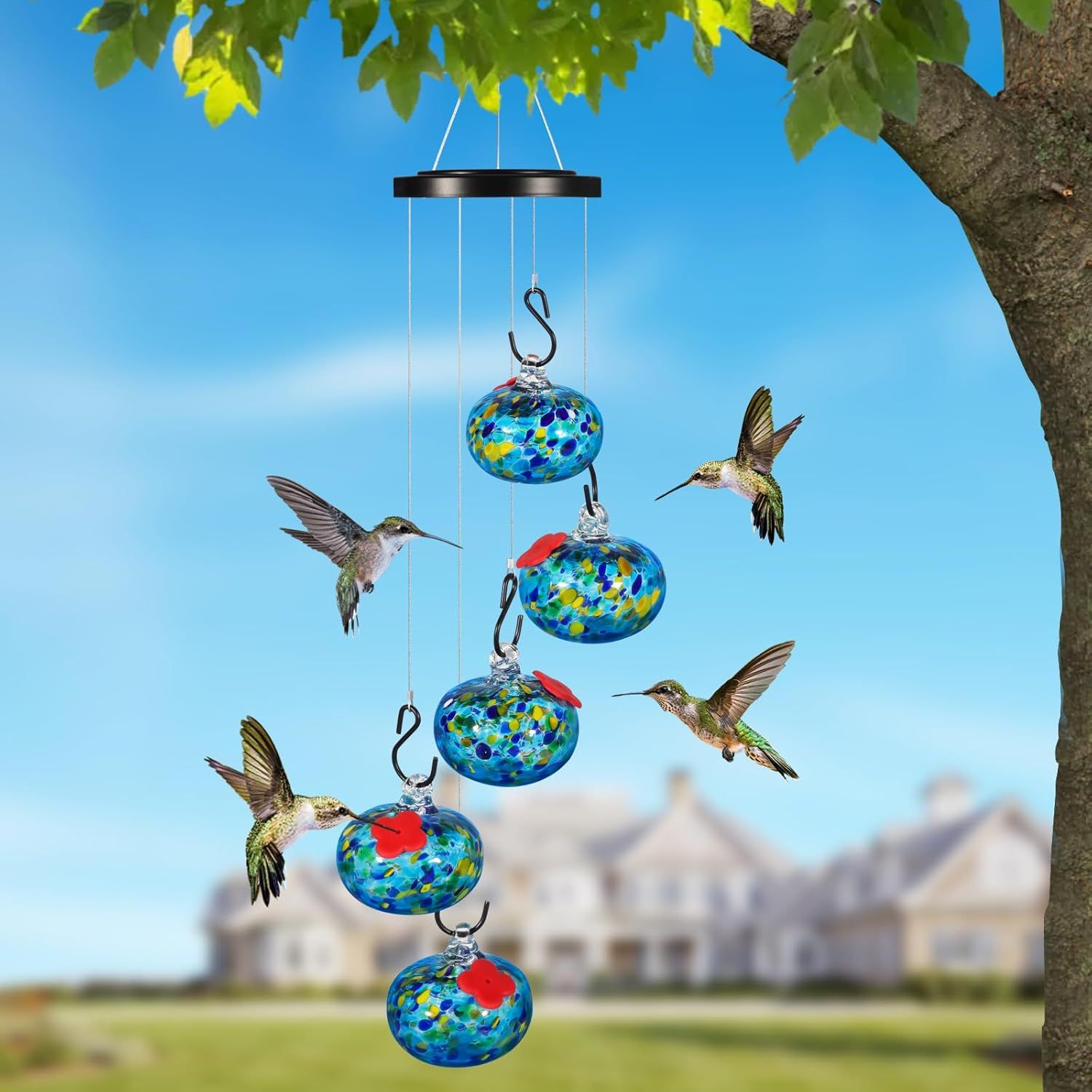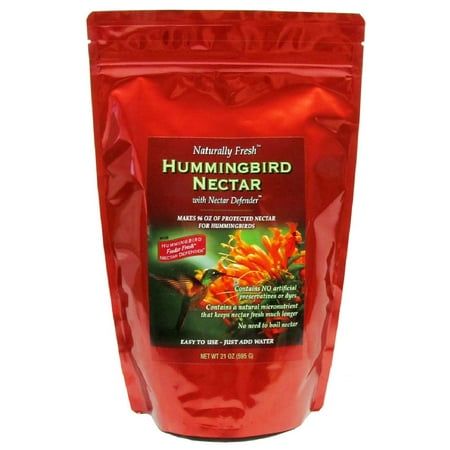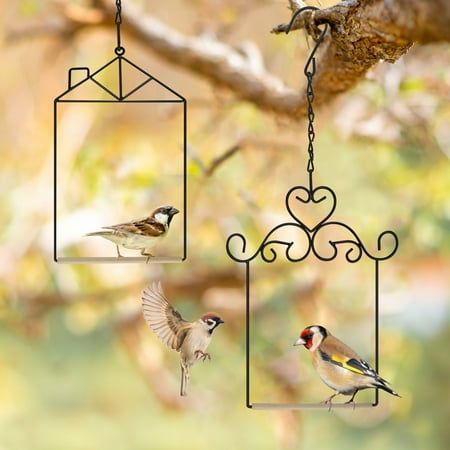'Don’t Put Hummingbird Feeders Away for Winter' Urges a Bird Expert – They’re a Vital Resource, but Only if Properly Maintained
Migrating hummingbirds rely on feeders in certain states during the coldest months

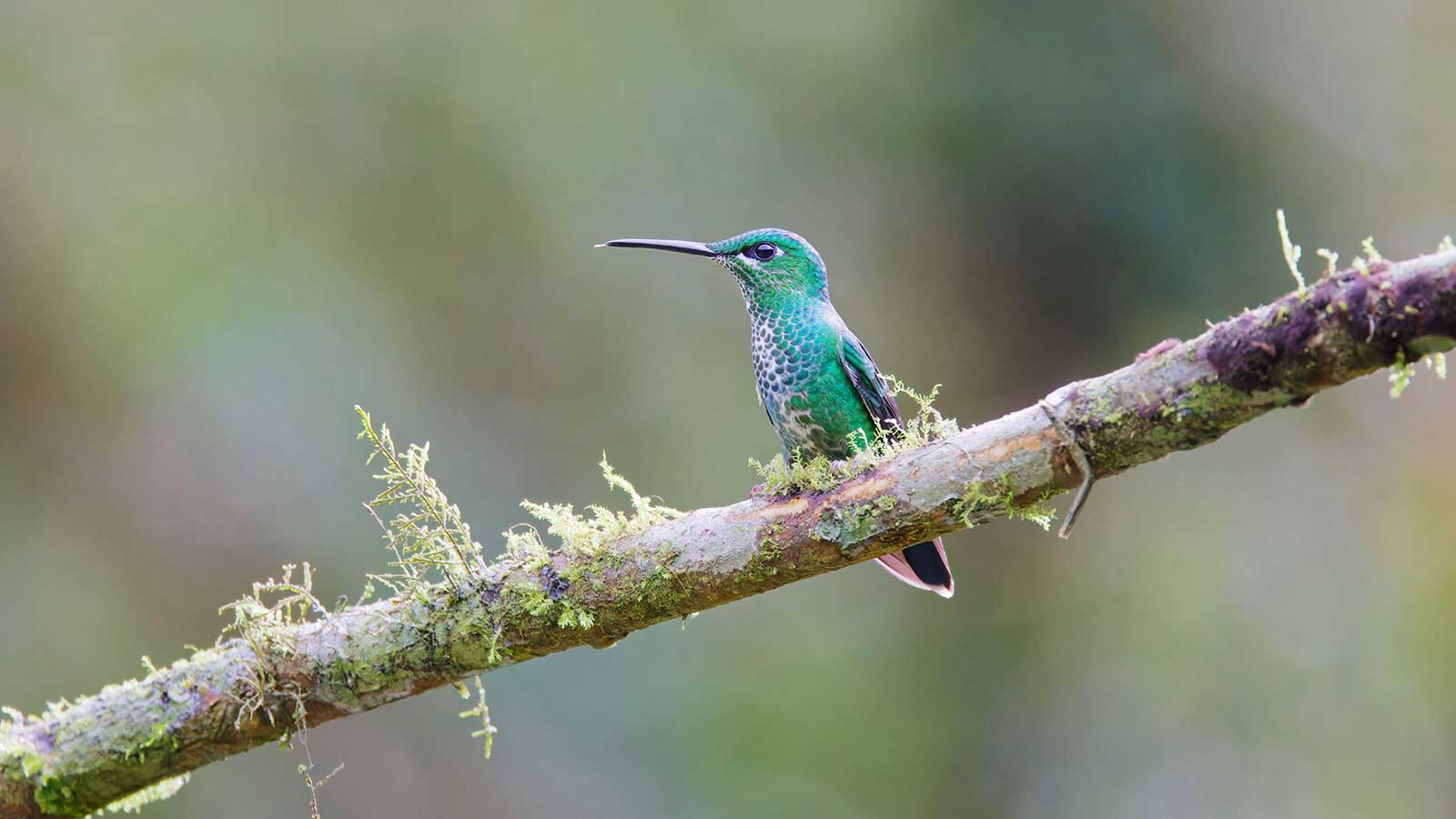
Design expertise in your inbox – from inspiring decorating ideas and beautiful celebrity homes to practical gardening advice and shopping round-ups.
You are now subscribed
Your newsletter sign-up was successful
Want to add more newsletters?

Twice a week
Homes&Gardens
The ultimate interior design resource from the world's leading experts - discover inspiring decorating ideas, color scheming know-how, garden inspiration and shopping expertise.

Once a week
In The Loop from Next In Design
Members of the Next in Design Circle will receive In the Loop, our weekly email filled with trade news, names to know and spotlight moments. Together we’re building a brighter design future.

Twice a week
Cucina
Whether you’re passionate about hosting exquisite dinners, experimenting with culinary trends, or perfecting your kitchen's design with timeless elegance and innovative functionality, this newsletter is here to inspire
While you may think you can put your bird feeder away for winter, this time of year is actually when they're most vital. Take hummingbirds, for example. Many of them migrate south for the winter months, and on their journey, they will be eager to spot feeders for some nourishment, where other food sources are scarce.
However, this does mean it is not necessary to keep a hummingbird feeder out all winter in every state. 'Caring for hummingbirds in winter really depends on where you live, with consideration of the hummingbird migration,' says Maria Kincaid, an ornithologist from FeatherSnap.
In many parts of the U.S., hummingbirds migrate south for the winter, making it unnecessary to keep a feeder out. But for those lucky enough to have hummingbird visitors during the colder months, Maria stresses the importance of proper maintenance to protect both your feeder and the birds’ health. She shares expert tips on where to leave a feeder out through winter and how to keep it in top condition.
If you’re searching for a new one, I recommend this Glass Hummingbird Feeder from Wayfair – it’s highly rated and comes from a trusted brand. This Glass Hummingbird Feeder from Anthropologie is a fantastic option for the design-conscious among us.
Should I leave my hummingbird feeder out all winter?
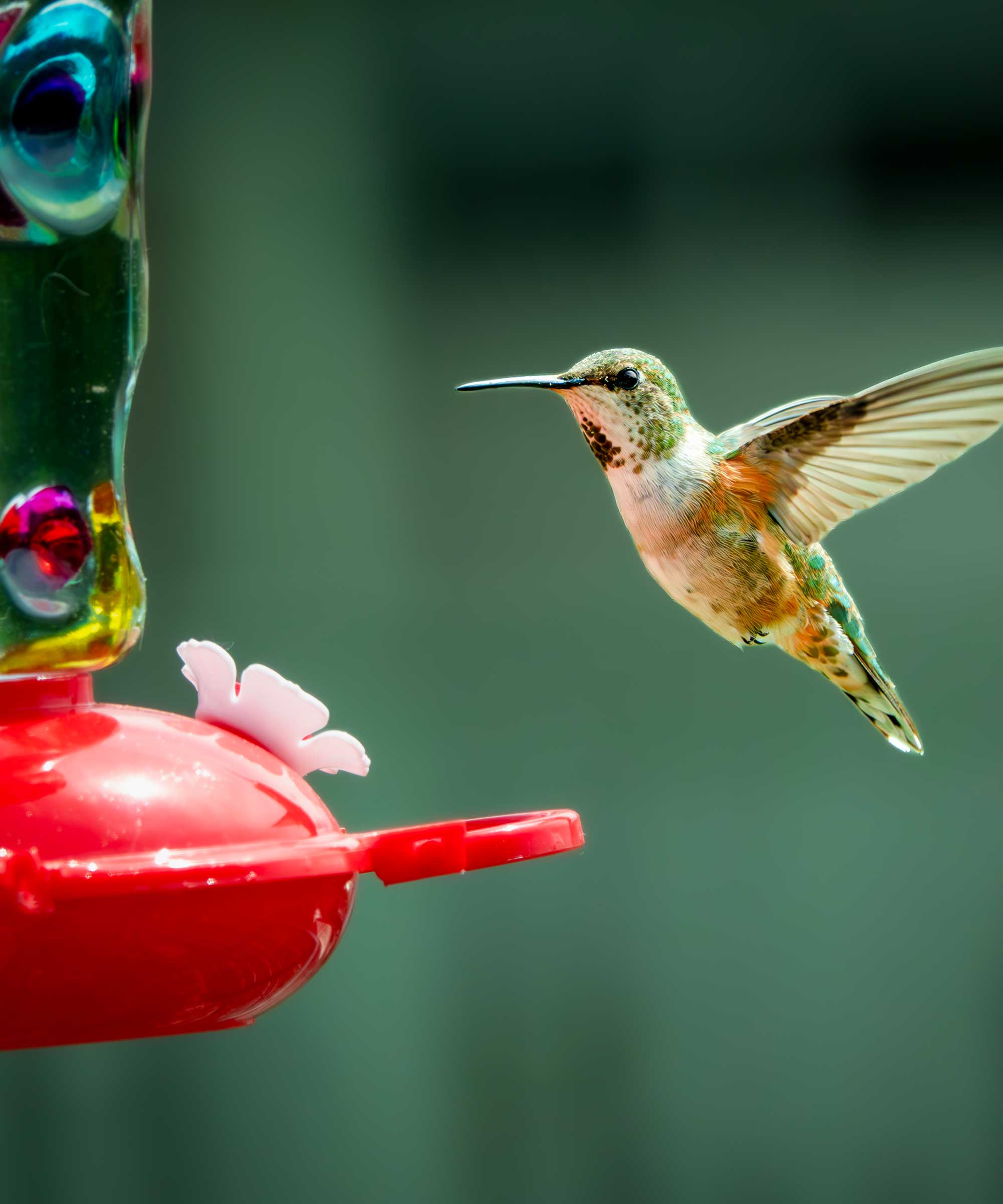
Putting out a hummingbird feeder (like this red one from Amazon) is one of the best ways to attract hummingbirds. They're designed to provide nectar for hummingbird's unique diets, with feeding ports for their slender beaks.
But, whether you should keep your hummingbird out all winter really depends on your location.
'Most hummingbirds found in the US are migratory, and throughout much of the country are only present during the breeding season (spring and summer), though wintering ranges do seem to be expanding,' Maria explains.
Design expertise in your inbox – from inspiring decorating ideas and beautiful celebrity homes to practical gardening advice and shopping round-ups.
Typically, hummingbirds overwinter in California, Texas, and Florida, and Louisiana. In these states it makes sense to keep your hummingbird feeder out and clean all winter. Increasingly, many species have also been seen overwintering in Mississippi, Alabama, South Carolina and Georgia.
As Maria notes, it changes each year depending on environmental factors.
One of the best ways to figure out if and when to take your hummingbird feeder down is just observing. If it's been a few weeks since you've seen a hummingbird in your yard, it likely means you don't need to leave your hummingbird feeder out all winter.
'You can also judge the timing of when to take down your feeders by looking at the amount of nectar being used,' Maria says.
Using a smart hummingbird feeder camera (like this from Amazon) can also help keep track of how many feathered visitors you're getting at this time of year.
'I always recommend leaving out your feeders for 2-4 weeks after you've seen the last of the breeding birds in order to make sure that there is a food source available for any birds migrating through. You should then put them back up in the spring, ready for another breeding season,' Maria advises.
How to maintain your hummingbird feeder in winter

Just like feeding other garden birds in winter, maintaining your hummingbird feeder is key to providing effective support.
'If you live in an area where there are overwintering hummingbirds, it's important to make sure you keep up on your feeder maintenance,' says Maria.
Most importantly, hummingbird nectar (like this from Amazon) needs to be fresh. It's essentially sugar water and can spoil quickly, so Maria urges to keep hummingbird feeders clean, otherwise harmful bacteria can be passed on to hummingbirds.
'Hummingbird feeders should be cleaned and refilled every 1-2 days when it's warm, and every 3-4 when it's cooler. You should also clean it if you start to see insects like ants or bees, or if the nectar becomes discolored in any way,' she advises.
You can clean your feeder ports with this hummingbird feeder cleaning brush from Amazon.
Something else to be aware of is frost:
'When temperatures are below freezing, you should either bring in your feeder, or consider a hummingbird feeder heater (from Amazon),' Maria says. This will protect your feeder from damage, like cracking, and stop nectar from freezing.

Maria Kincaid is the ornithology research specialist at FeatherSnap, or as she refers to it, the team 'bird nerd'. Originally from New Orleans and having lived all over the country, Maria studied Natural Resource Ecology and Management at Louisiana State University. With a lifelong love of animals and the outdoors, it was easy for her to fall in love with birds, birdwatching, and the science behind it all.
FAQs
Do other birds use hummingbird feeders in winter?
Yes, some birds will use a hummingbird feeder in winter. For example, woodpeckers, finches, and orioles may seek the nectar in a hummingbird feeder. However, these larger birds can be problematic for hummingbirds, dominating feeders and scaring them off. Luckily, there are a few things you can do to stop other birds from using a hummingbird feeder, including offering alternative food sources away from your hummingbird feeder.
If you're starting to suspect you have hummingbirds in your yard but aren't entirely sure, our guide to spot hummingbird nests may be useful.
Stocking up on the below hummingbird feeder accessories can also help you avoid hummingbird feeder mistakes, and they make for charming gifts this holiday season:

Tenielle is a Gardens Content Editor at Homes & Gardens. She holds a qualification in MA Magazine Journalism and has over six years of journalistic experience. Before coming to Homes & Gardens, Tenielle was in the editorial department at the Royal Horticultural Society and worked on The Garden magazine. As our in-house houseplant expert, Tenielle writes on a range of solutions to houseplant problems, as well as other 'how to' guides, inspiring garden projects, and the latest gardening news. When she isn't writing, Tenielle can be found propagating her ever-growing collection of indoor plants, helping others overcome common houseplant pests and diseases, volunteering at a local gardening club, and attending gardening workshops, like a composting masterclass.
